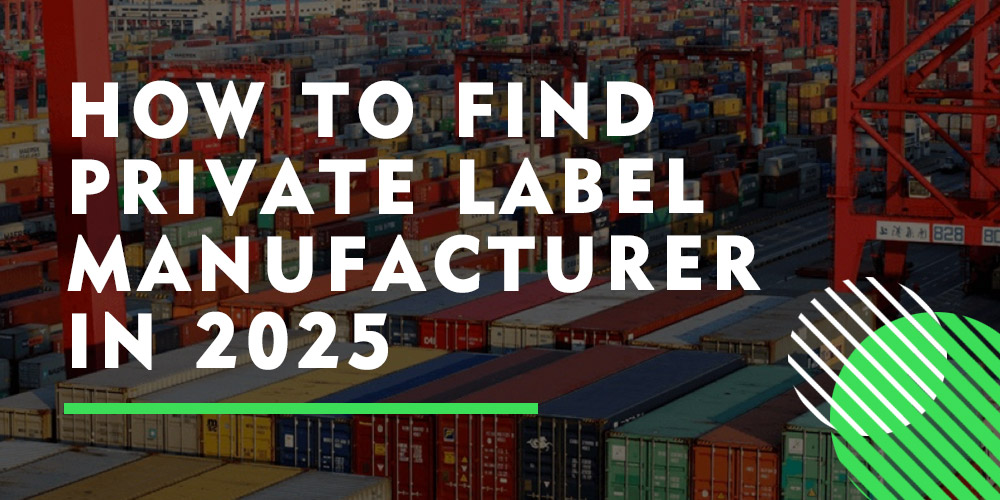
Launching your product under your own brand name can help separate it from your competitors’ products.
A private label business is the most straightforward and effective way to make your product stand out in the market.
But how to find a private label manufacturer? Let’s explore some of the resources you can use to find a manufacturer in your area and what you need to find a great manufacturing partner for your private label business.
What Is a Private Label?

A private label is a business model in which a merchant purchases products from a supplier who manufactures the products with their own materials and recipes and then labels the products with the merchant’s own brand.
Custom enclosures with the merchant’s brand name and logo are often also ordered with private label products to create a different, fully customized version of the generic product to be sold online.
A private label is a product sourcing model where you place your own brand (or label) on a product that is mass produced by a contract manufacturer. Then the product that is privately labeled is sold only to that retailer.
An example of this is Walmart’s Great Value products. Walmart pays a food manufacturer to produce a product under the Great Value name and sell it exclusively through Walmart.
Why don’t retail giants like Wal-Mart just manufacture their own products?
Usually, retailers pay less for their products by using private label manufacturers rather than producing all of their own goods. Some people say they can get a high-profit margin of about 90%.
However, the private label business model does not work for all products. A private label product is an item that does not require any modifications before being brought to market.
It is also a product that requires a few tweaks here and there before being brought to market.
Private labels do not apply to innovations, inventions, or products that must be manufactured entirely with new molds, materials, or design specifications.
How Does Private Label Work?
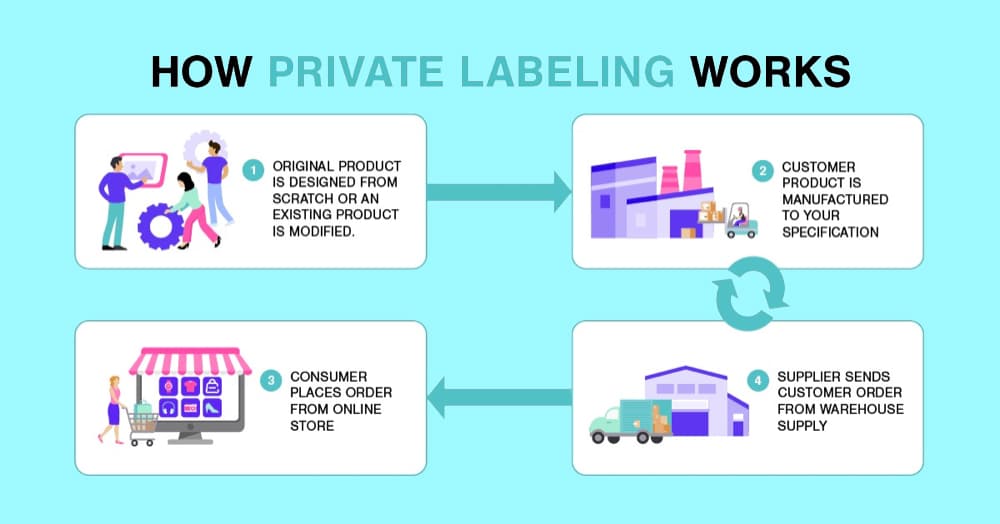
To start with the private label business, retailers must determine what products or niches they want to operate within. They will then find a supplier they want to work with and see if they offer a private label.
From there, the retailer can order samples and determine if they are willing to bring that product to market. Research, test and discover which products will give you the highest profit margins.
Most manufacturers will charge you a small fee to ship test samples, but most companies will refund it when you do business with them.
Remember that business owners selling private label products are looking for a product they can put their brand name on and sell as if it was their own.
What Are the Benefits of Private Labels?
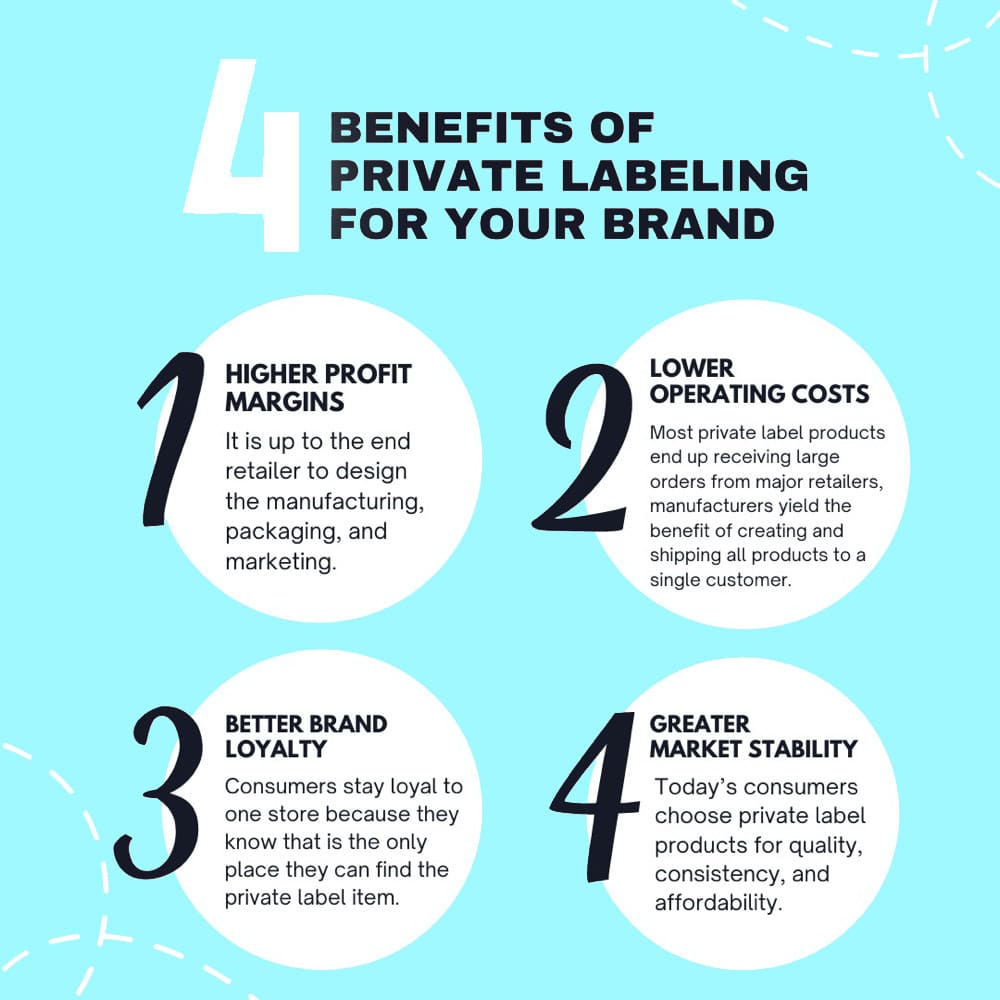
1. Private label offers higher profit margins
When you mass-produce your own products, your purchasing costs are significantly lower. Some of the private label products have margins of upwards of 90%.
If you compare this to the 50% profit in traditional wholesale or the 30% profit in dropshipping, you quickly realize that private labels offer much greater earning potential.
2. Private label allows you to build your own brand
If you think about it, every product sold today is just another commodity. The main criteria that drive our purchases are the brand.
For example, I would choose Apple for a cell phone and Tide or Lipitor for laundry because of their brand. Therefore, the main and biggest advantage of selling private brands is the ability to build customer loyalty and trust.
3. There are many suppliers to choose from
While the private label business model is not as straightforward as the source, manufacture, and wholesale, it is one of the best ways to bridge the gap between the manufacturing and wholesale processes.
Choosing a private label manufacturer keeps you away from the expense and manufacturing process. You don’t need to reinvent the wheel for product research and production.
This gives you ample time to focus on your business’s sales and marketing aspects.
4. Quality products from specialized manufacturers
Some people focus on creating specialized products for a handful of suppliers but with slight modifications to the product based on the merchant’s specifications.
It depends on which manufacturer you work with and the type of private label products you produce.
5. A scalable business model
Working with private label manufacturers makes it easy to scale up your business. When business increases, you can order more products without the cost of expanding your own production facilities.
In the off-season, reduce your supply chain without worrying about ongoing production costs and quickly reduce the products you order.
6. Unique branding and marketing
Unique branding helps you rank very well, which is why private labeling is one of the most profitable eCommerce business models.
Private label business is about building a brand that you own. It’s a direct way to build on customer loyalty and recognition.
By separating yourself from your regular products, you are creating a cornerstone to build a strong customer base, which provides an opportunity to work on their loyalty.
What Is a Private Label Manufacturer?
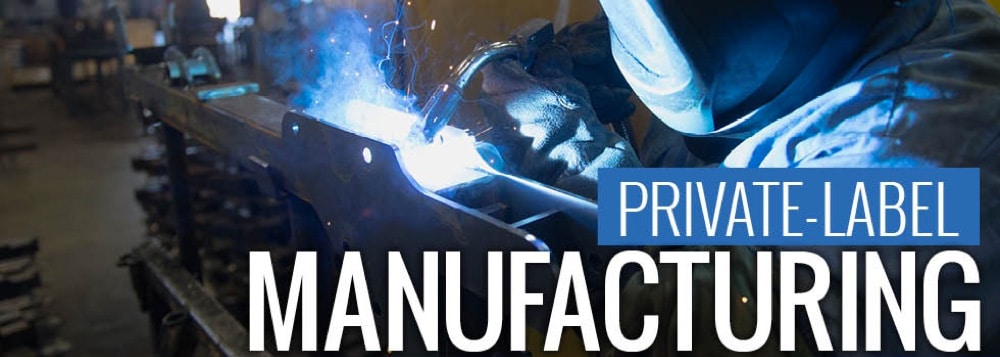
Private label manufacturers are factories that produce standard products designed to be sold under different brands.
Private label manufacturers are suppliers who manufacture products from scratch based on their own methods, formulas, or designs, and they offer their products to merchants at wholesale prices.
Private label manufacturers can also be manufacturers, wholesalers, and private label suppliers.
The only difference is that in the private label business model, they are willing to manufacture their own products but label them under other merchants’ brands.
They make all their products from scratch to your specifications and then sell them at wholesale prices.
This means the supplier sells the same product to multiple merchants in different packaging. The products appear different at the consumer level because they are sold under different brands.
In fact, they are the same product, just with different brands on the packaging and labeling.
However, this is not always the case. It depends entirely on the private label manufacturer and the type of products they create.
Some private label makers work with many different merchants and offer the same products for each of them.
In contrast, some private label makers only work with a handful of merchants and create custom products for each of them that are modified versions of the base type of products they specialize in.
It all depends on each private label manufacturer and how they do business, which can vary from person to person.
What Types of Private Label Manufacturers?
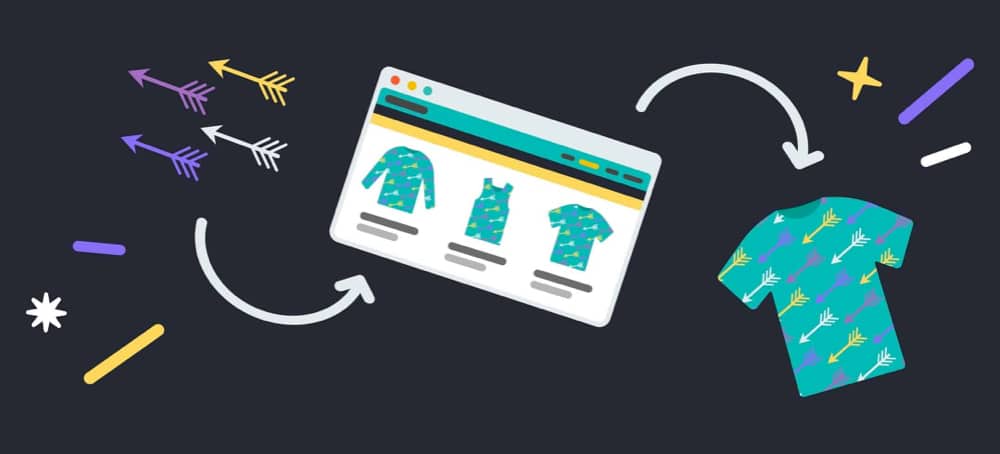
What you want to sell determines the type of private label manufacturer you are looking for. It will also help you find them more accessible and help you source the products you want to sell online.
After you know your own needs, this will lead you to the type of private label manufacturer you are looking for.
The big types of private labels that are usually available are:
- Clothing and accessories private label manufacturers
- Beauty, cosmetic and health care private label manufacturers
- Computer and electronics private label manufacturers
- Food and beverage private label manufacturers
- Home, garden, and office supply private label manufacturers
- Footwear private label manufacturers and more
As you can see, there are a lot of options when it comes to the type of private label manufacturer that you can work with.
Once you know what you want to sell online, you can hone in on the specific type of private label manufacturer you need to work with to bring your product idea to life, which will get you started in the right direction.
Where Can I Find a Private Label Manufacturer?

It was tough to find private label manufacturers in the past without hopping on a plane and flying to China. But today, it’s easier to search and find manufacturers online.
If you don’t have time to search many pages on Google to find private label manufacturers, try searching through online private label directories.
They are a much more efficient way to find private label manufacturers, and you can even find manufacturers that you can’t find in a Google search.
1. Online e-commerce platforms
Online marketplaces are now the primary digital marketing channel, especially in the U.S. Marketplaces such as eBay, Alibaba, and Amazon are the best sources for searching for potential private label manufacturers.
Studies show that Amazon has recently surpassed Google in product research. Therefore, as a seller, this platform is a top choice for finding trends and profitable categories.
Once you have narrowed down your niche, you can contact a supplier and ask if he can produce a product to your specifications.
You may learn more about China Wholesale Websites for details below:
Complete List 2025: Top 30 Best China Wholesale Websites
2. Google

For most people, the most appropriate way to start a search is on the world’s largest search engine. The search results will highlight the major players in your chosen industry.
Please adjust your search criteria to make it easier to find private label manufacturers serving more niche markets or those with specialized certifications.
3. Reddit
Reddit is a great place to search for private label manufacturers. There is a special private label community where people are constantly posting private label manufacturer suggestions based on their niche and market.
4. Thomasnet
Thomasnet is a search tool specifically designed for individuals looking for suppliers. You can search for suppliers by category, company, or brand.
5. Alibaba

Alibaba is another great search engine to use as a resource when looking for private label manufacturers. The search techniques you use on Google can also be tried on Alibaba.
You may learn more about Alibaba for details below:
Is Alibaba.com Legit? How to Buy from Alibaba?
6. Trade fairs
Industry trade fairs can be a great way to connect with the best private label manufacturers. These gatherings provide an opportunity to cover a lot of ground in a short period.
Meeting with each manufacturer’s representative allows you to ask specific questions and better understand the company culture.
You may learn more about China Trade Fairs for details below:
Complete Guide 2025: Top 5 Best China Trade Fairs
7. Yansourcing
Work with Yansourcing. They have a complete database of suppliers and manufacturers that can help you find the right factory for your product.
You may learn more about Yansourcing’s services for details below:
Introduction of Our Services and Charges
How to Find a Private Label Manufacturer?
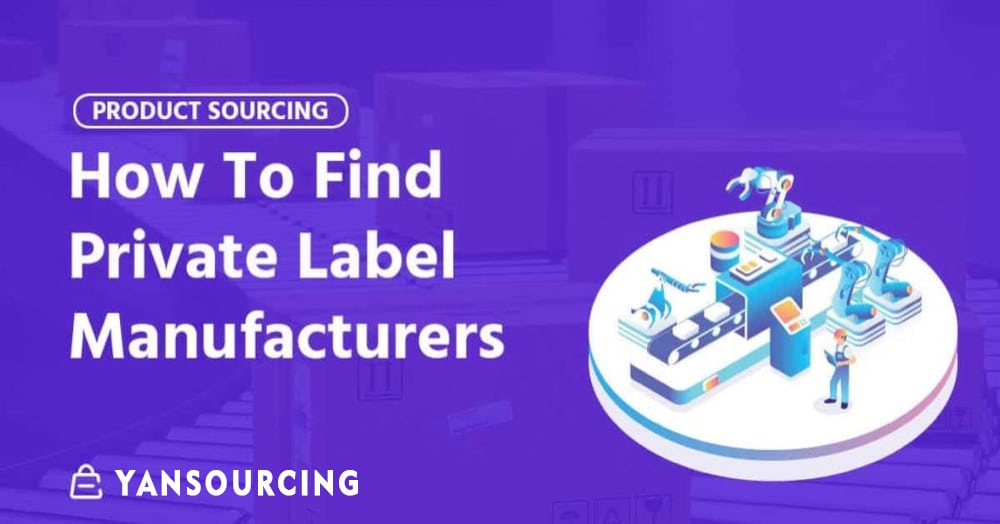
When choosing the right private label manufacturer for your product, here are some steps you need to follow:
Step 1. Pre-Screen your private label manufacturer
Before contacting any private label manufacturer, you should do some research. For example, Alibaba and other supplier directories offer public reviews and ratings for you to review.
Since purchasing private label products for sale can be a significant investment, you should take the time to read both positive and negative reviews.
Step 2. Ask private label manufacturer some questions
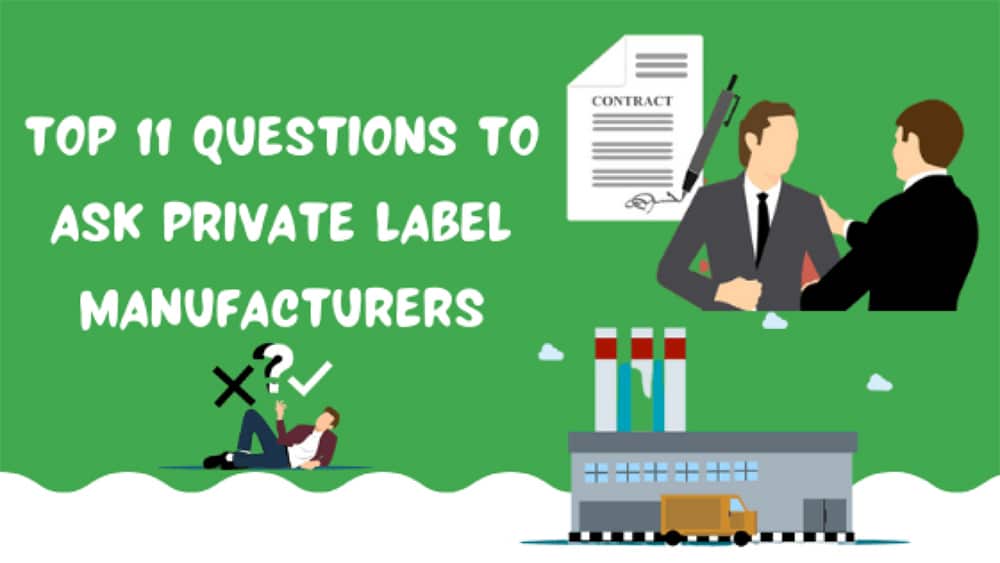
- What is the minimum order quantity (MOQ)?
- Can you suggest any modifications to improve the product?
- Do you ship to my country? If so, what are your shipping costs and time?
- What is the unit price? To know exactly how much the entire order will cost.
- What are the payment methods and terms?
- What is their production schedule, and when will they be able to start producing your product?
- Ask them if they offer samples and the price (you may have to pay full price, or just for shipping, or it may be free).
- Ask what their payment terms are (do you need to pay in advance, in installments, or upon receipt of the product?).
- Ask for their business location and shipping address (so you can confirm that this is true and that they are a legitimate business).
- Ask for their phone, Skype, and email contact addresses (so you can contact them via these methods if necessary).
- Ask if you can visit their office or factory (it’s important to ask this question because it could be a clear red flag if they refuse).
Note: It is very important to do research at the beginning of your engagement with a private label manufacturer.
The supplier you select will be part of your supply chain and an important part of your business, and you need to know that you can trust them.
Don’t take this part of the process lightly. Make sure to ask as many questions as you feel comfortable with. If you get a bad feeling, it’s okay to walk away and move on to another supplier.
Step 3. Order a prototype
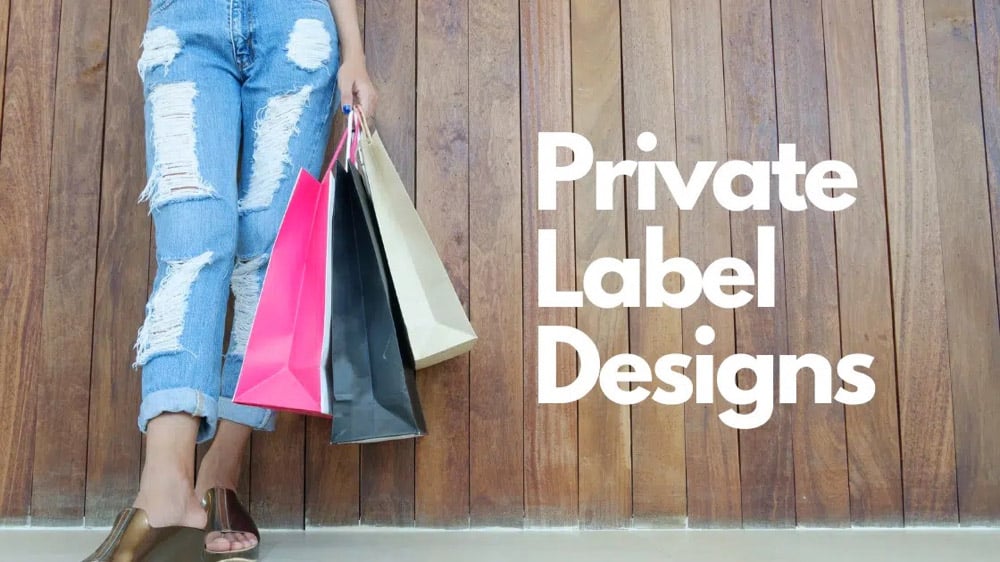
When you have all the details you need to decide if a manufacturer meets your needs, you need to order a prototype of your product.
This is for quality control and to ensure that the product you plan to put on it meets your standards before it goes into production.
Step 4. Try to place your first order
If you are satisfied with the quality of your test product, you are ready to place your first bulk order. By now, the conversation with the supplier should be normal, and any business negotiations have been completed.
Step 5. Check product quality
Product quality is a major aspect of choosing a private label manufacturer. Make sure you get samples for testing before you deal.
Confirm the color, size, dimensions, and style of the products they offer and the modifications you need.
Step 6. Reliable delivery
A reliable and good delivery system is the key to customer satisfaction, especially in e-commerce businesses. So, ensure your products are delivered on time because no one likes damaged or inefficient goods.
Private Label Manufacturers FAQ
1. What is a private label product?
Simply put, a private label product is one company’s brand manufactured by another company and then offered for sale by another company.
In most cases, private label products are created by specialized manufacturers who create unique, well-researched designs and brand images for their products to further differentiate their client company’s products from the competition.
2. Why choose the private label business model?
Obvious differences between the private label business model compared to other business models as follows:
a. Brand control
Most business models do not allow you to have complete control over the branding process, except for manufacturing.
With a private label, you as a businessman can add your brand to the products created for you by the private label manufacturer. You can usually label and package the product exactly how you want.
b. The ability to compete in the marketplace
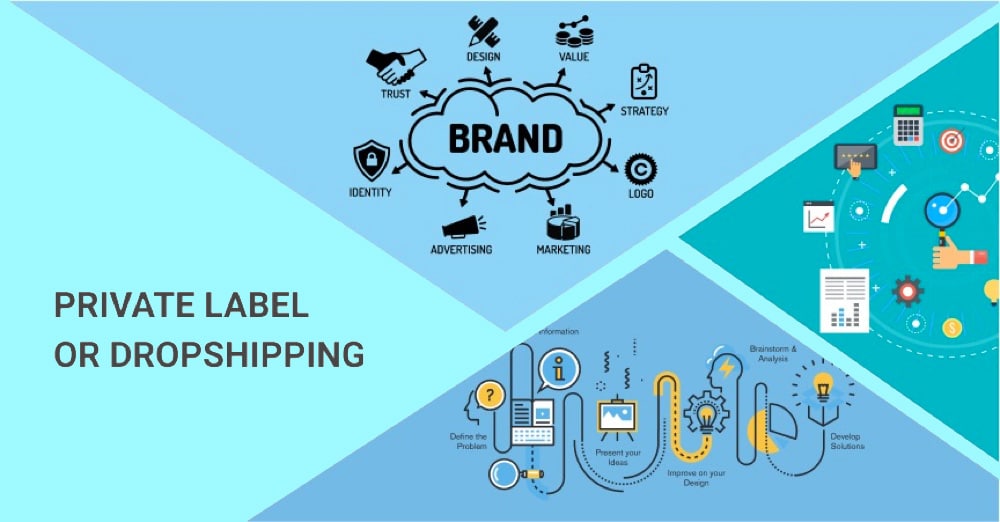
Business models like dropshipping have low margins and offer products that are usually easily available to other businesses, so it’s hard to build your brand and become a major player in the marketplace when other companies easily enter your supply chain.
The private label business model limits this process.
Since you will be working directly with the manufacturer, you can usually modify your suppliers’ products to make them unique to your store, making it more likely that you will stand out from your competitors.
3. Do private labels have disadvantages?
While there are some very powerful advantages in favor of the private label business model, it also has its own drawbacks.
Here are some of the most common disadvantages:
a. Potentially limited branding options
While the private label business model allows brands to control their product brands and the branding on their packaging, there may still be some limitations depending on what the manufacturer can create.
b. Minimum order quantity (MOQ)
Generally, private label manufacturers operate on minimum order quantities (MOQ), which means that you as a merchant will be required to buy hundreds or thousands of your products in advance and then sell them to your customers.
This can be a big hurdle for entrepreneurs who don’t want to have a large inventory or can’t meet MOQ requirements.
You may learn more on our blog about MOQ for details below:
MOQ Meaning: What is MOQ? The Only Guide You Need
c.Competition
Since private label manufacturers generally offer generic products that can be modified, this may make it difficult to stand out from other e-commerce sellers who also sell similar types of products.
Private Label Manufacturers Conclusion
Having read here, you should now understand what a private label is and how it works. A private label manufacturer can provide good service for your products, so it is important to choose a reliable manufacturer.
Do you have any questions? I’d love to answer them in the comments section below.
We are the leading sourcing company in China and are committed to helping our customers source good products from China at the most competitive prices. If you want to import from China, please feel free to contact us.
